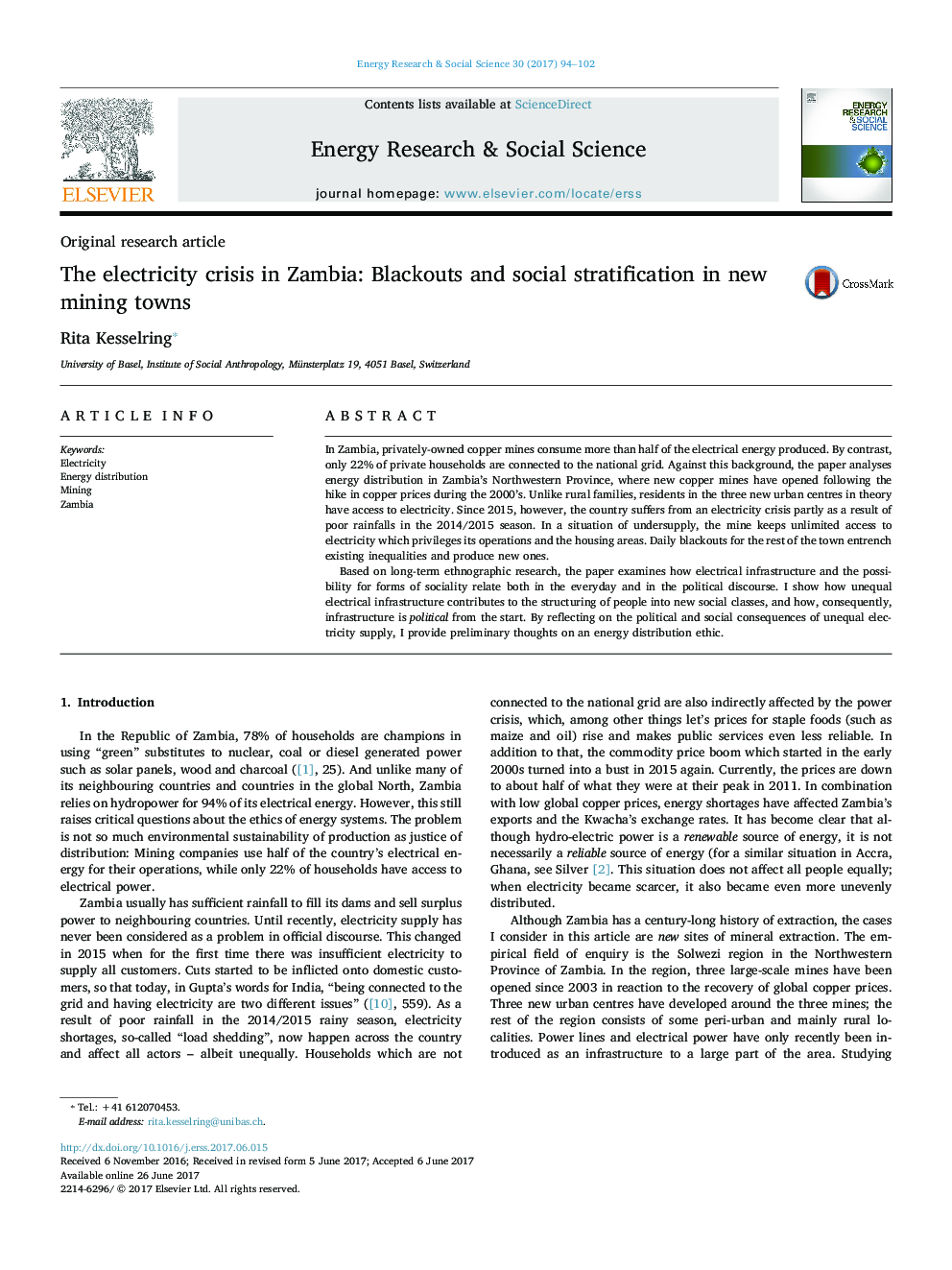| کد مقاله | کد نشریه | سال انتشار | مقاله انگلیسی | نسخه تمام متن |
|---|---|---|---|---|
| 6463739 | 1422571 | 2017 | 9 صفحه PDF | دانلود رایگان |
In Zambia, privately-owned copper mines consume more than half of the electrical energy produced. By contrast, only 22% of private households are connected to the national grid. Against this background, the paper analyses energy distribution in Zambia's Northwestern Province, where new copper mines have opened following the hike in copper prices during the 2000's. Unlike rural families, residents in the three new urban centres in theory have access to electricity. Since 2015, however, the country suffers from an electricity crisis partly as a result of poor rainfalls in the 2014/2015 season. In a situation of undersupply, the mine keeps unlimited access to electricity which privileges its operations and the housing areas. Daily blackouts for the rest of the town entrench existing inequalities and produce new ones.Based on long-term ethnographic research, the paper examines how electrical infrastructure and the possibility for forms of sociality relate both in the everyday and in the political discourse. I show how unequal electrical infrastructure contributes to the structuring of people into new social classes, and how, consequently, infrastructure is political from the start. By reflecting on the political and social consequences of unequal electricity supply, I provide preliminary thoughts on an energy distribution ethic.
Journal: Energy Research & Social Science - Volume 30, August 2017, Pages 94-102
